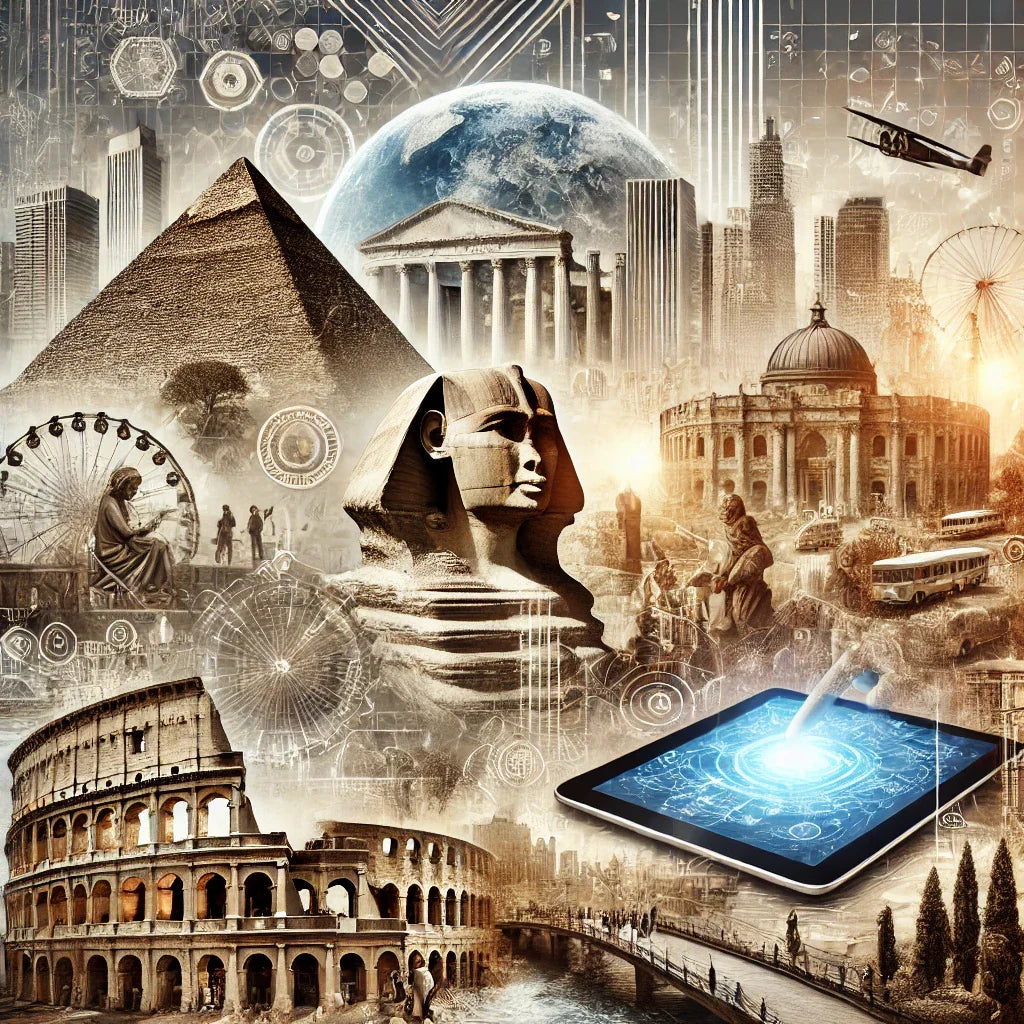
Why Understanding World History is Crucial for Progress
Share
In today’s fast-paced world, it’s easy to feel disconnected from the past, focused only on the present and future. Yet, one of the most powerful tools we have to navigate the complexities of our lives, industries, and communities is a general understanding of world history. We often think of history as a subject reserved for students, but it holds invaluable lessons for us all. Whether you’re a business leader, an artist, or someone simply trying to make sense of the world, history can help us understand how we got here and where we’re going.
The Power of Perspective
History isn’t just about dates and events—it’s about understanding the stories of people, cultures, and societies. When we learn about the past, we gain insights into how people solved problems, overcame adversity, and adapted to changes. These lessons are vital for us today, as we face challenges like technological advancement, social change, and global crises.
For instance, learning about the rapid rise and fall of civilizations—whether it’s the ancient Egyptians or the Roman Empire—teaches us how innovation, leadership, and societal values can shape the course of human progress. Understanding these patterns helps us better navigate modern issues, from climate change to geopolitical conflicts, with a long-term perspective.
Informed Decision-Making in Our Personal Lives and Work
A knowledge of history empowers us to make informed decisions, both in our personal lives and careers. Just as we learn from past experiences to avoid mistakes and seize opportunities, history provides a vast repository of human knowledge. For example, understanding the development of healthcare systems throughout history helps us appreciate how modern medicine evolved and why public health practices matter today.
In the workplace, leaders who understand history often make better strategic decisions. They can recognize patterns in markets, social trends, and human behavior that might not be immediately obvious. Entrepreneurs, too, benefit from historical knowledge when crafting innovative ideas, by learning how previous business models succeeded or failed. Simply put, a well-rounded view of history allows us to connect the dots and foresee potential outcomes.
Building a More Cohesive Society
On a societal level, history fosters a shared understanding of who we are and where we come from. In an increasingly globalized world, empathy and collaboration across cultures are key to solving complex global problems. History teaches us about different cultures, worldviews, and conflicts, which can help us find common ground. By recognizing the struggles of others and understanding the reasons behind historical conflicts, we are better equipped to create inclusive, harmonious societies.
Moreover, history shows us that progress often comes from collective action. Whether it’s through movements for civil rights or environmental sustainability, the achievements of the past remind us that change is possible when we work together. This understanding can inspire us to continue fighting for equality, justice, and sustainability.
Progress is Rooted in History
While technology and science might be at the forefront of innovation today, progress in all aspects of life is deeply rooted in our understanding of history. The knowledge of where we’ve been guides us on where we’re going. By acknowledging the lessons of the past, we empower ourselves to make better decisions, foster empathy, and continue evolving as individuals and as a society.
So, take the time to explore history—not as a distant subject, but as a living, breathing guide to understanding today’s world and the future. The more we learn from our past, the more we can contribute to progress, both personally and collectively.
